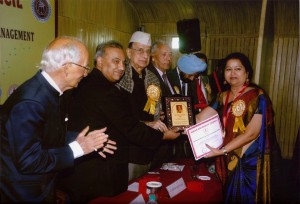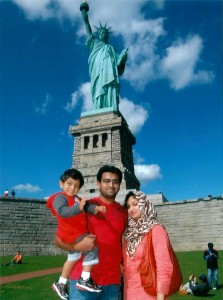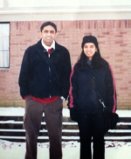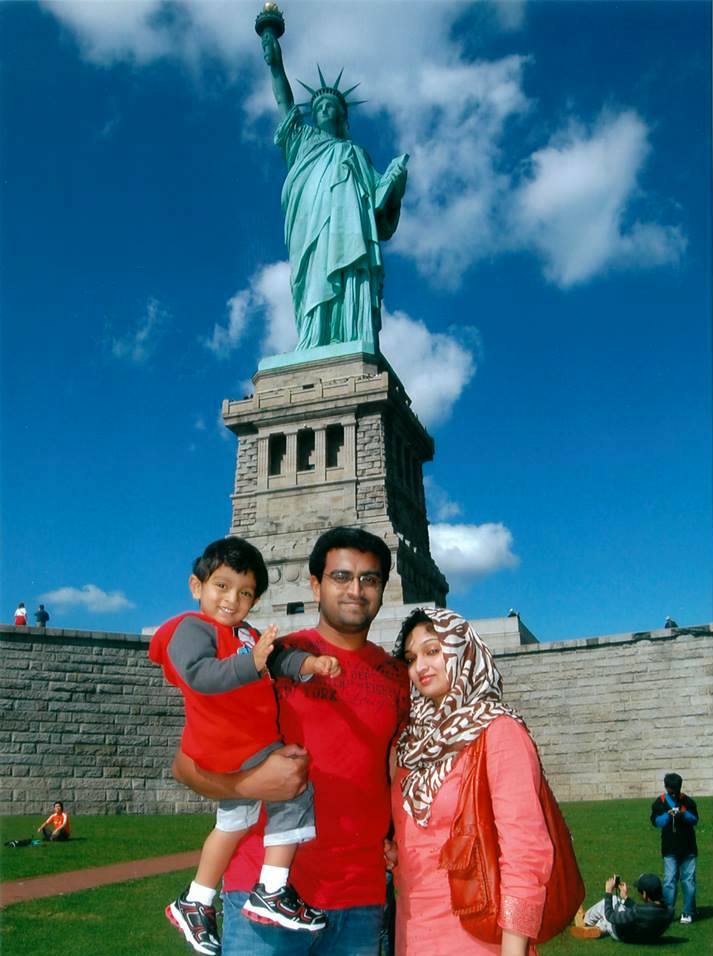NRI returnees has multiplied exponentially.
SAN FRANCISCO: In India, where ‘Moving to the USA’ is the ultimate nirvana of the smart and successful, it seems ludicrous to suggest that the tide is reversing. But in America, the number of educated immigrants relocating to their homeland is significantly increasing, capturing the attention of economic scientists and think tanks. They have even coined a term for it; ‘Reverse Brain Drain’.
Set in motion by the dotcom bubble burst, the tribe of NRI returnees has multiplied exponentially since the global meltdown of 2008.
Why are these skilled workers moving away from America? Professional, personal and cultural factors contribute to this issue. Entrepreneurship and business start-up is the primary goal for the majority of the returnees. India’s developing corporate structure promises better career prospects and job security. Another reckoning factor is immigration issues and visa regulations. The comfort zone of family, relatives and cultural identity is another big factor. Better standard of amenities, like housing, healthcare and schools are also a major draw.
Do the returnees find it tough to reacclimatize? Are they content with their choice? How has the country changed since they left it?
Three couples who moved back to India, took the big step, for different reasons, spoke to The American Bazaar.

Vaidehi and Arun, Bangalore – ‘Never looked back on our decision.’
For Vaidehi and Arun, the move back to India was not brought about due to Green Card hassles or family pressures.
There were no compelling factors, says Vaidehi.
“It was always our desire to move back and we never looked back on our decision,” she said.
Having been part of the Silicon Valley tech culture for more than a decade, the couple moved back to Bangalore in 2002. The logistic challenges of moving a decade’s worth of life in boxes notwithstanding, Vaidehi feels now they are at true peace.
Their children, who are now in their teens, have settled well in India and have never complained about the move.
Reminiscing about her life in the US, Vaidehi says she misses the library, travel, the peaceful drives, and the focus on quality customer service. She feels that her life in the US broadened her horizons.
“I certainly became more open in my thoughts and learned to communicate to impact and I learned a lot about Early Childhood Education,” she said.
Inspired by the professional teaching methods followed in the US, Vaidehi quit from the IT sector, and embarked on a teaching career. In 2003, the first Podar Jumbo Kids preschool was launched with the aim of providing a preschool program based on an International operating system, coupled with Indian ethos. Ten years and four branches later, Vaidehi’s commitment to excellence is evident through the success and recognition she has received. In 2013, she was awarded ‘The Rajiv Gandhi Vidya Gold Award’ for outstanding achievement in the field of education and ‘The National Mahila Rattan Gold Medal’ for Woman Entrepreneur.
Vaidehi and her family go to the US often for vacations. The children have plans to come back for college, but the thought of migrating back to the US has never crossed their minds.

Gulzar and Shamida, Thiruvananthapuram – “Had the best time of our lives’.
Gulzar and Shamida describe their five year U.S stint as ‘the best time of their lives’. They lived the dream life of an NRI; had a baby, made good friends, with excellent quality of life.
“All you need is a car, GPS and an adventurous mind if you want to explore and enjoy US,” says Gulzar, who was a software consultant in the Bay Area. “But despite it all the nagging doubt about your immigration status persists in the back of your mind. You don’t feel fully settled in US unless you have a green card.”
The move back to Thiruvananthapuram was prompted by Shamida’s hope to complete her bachelor’s degree in dental surgery. She had put the brakes on her course when they got married and moved to the US. Furthering her studies in the US was not a feasible option due to their visa status and the volatile job market. As Kerala was experiencing its first IT boom, Gulzar had no trouble clinching a lucrative job.
“Everything moved into place and before we had a chance to change our mind, we were back in India,” he says.
Given the home town advantage, Gulzar and Shamida knew what to expect, when they moved back.
“Things have improved a lot even in a quiet town like Trivandrum. I remember my friends in US talking about the predicaments involved in doing simple things like paying the electricity bill (no longer the case as we can pay our bills online now). The infrastructure and bureaucracy leave a lot to be desired though,” says Shamida.
“On the work front, I like my work a shade better here as I have a bigger team and my knowledge of the US software industry gives me an edge,” said Gulzar.
And of course the icing on the cake is the being part of the big Indian family system.
In US, various reasons compel one to stick with friends from the same community or other common factors but that is not really needed back home when one belong to a big family, the couple said.
Farhan, their son, who was four when they relocated, was quick to adapt. The couple trusts that the Indian experience will help him to identify more with Indian culture, if they were to ever move back.
Gulzar keeps shuttling to US as most of his clients are based there. The possibility of returning is still on the cards.
“It is not a country you can easily forget, when you’ve lived there for a few years,” he said. “I am keeping it very flexible at this point.”

Anjali and Ashif, Bangalore – ‘Adding value to life’.
Anjali talked about her experience: “Within a few days of landing in the US in 2001 as a Ph.D. candidate in biophysics program, I met my (now) husband, Ashif, who was living in the same townhouse complex just off campus. I got my Ph.D. in 2007 and moved to Chicago to work as a post-doc at the University of Illinois. A few months later Ashif moved there, and we got married. In 2008, I landed a job as a scientist in a small biotech company in Ithaca, NY. We enjoyed our time there because of all the natural beauty and the plethora of outdoor activities. We had Dia in April 2009 at Ithaca.
“Back home, my family was going through a testing time after my father was diagnosed with cancer in June 2009. After trying (unsuccessfully) to offer support over phone and email, I decided that I had to move back immediately to be with my family.
“Finding a suitable job in India was perhaps the biggest trial. Although there are many opportunities, you have to brace for differences in corporate culture and work ethic. There is an overall inefficiency in getting things done.
“We settled in Bangalore. Ashif is partner at a Chicago-based engineering consulting firm that provides structural design services on construction projects, while I work for the biotech firm Biocon.
The payback:
“Work is demanding and rewarding as the industry is experiencing a boom thanks to the growth in generic drugs.
“Certain aspects of my day-to-day life have gotten better. It is easier to get household help in India, so I can concentrate more on things that really add value to our lives. The weather in Bangalore is pleasant pretty much throughout the year; which is a great change from the Midwest and upstate New York. Our travel and vacations are more diverse, and we get to see more places now that there is no need to take long breaks to be with family.”
The flip side:
“Other things have taken a turn for the worse. Bangalore epitomizes India’s infrastructure nightmare. The roads are horrible and pollution is out of control. Corruption is widely endemic below the surface when it comes to government’s interactions with businesses.
“Also, I miss the great friends I made, and the road trips we used to take. Although I don’t like to admit it, I sometimes miss the winters and the snow.
“When we moved back, we knew that we would be straddling both worlds since Ashif’s work would still be in the US. I would like to live there again for a few years before Dia starts college.”
Biggest takeaway from US:
“The US made me realize the value of being brisk and forthright when communicating (especially at work). A lot of cultures (especially India) let false hierarchies based on seniority, or the fear of confrontation, stifle free expression. Having interacted with folks from all over the world, I feel that this virtue is uniquely American, and I am glad that I took this away from there.”




5 Comments
There is no payback for dedication and selfless service in India for intellectuals be it in public sector or private sector or central government service,at the end of around 40 years career,you are left with nothing for survival in old age except the meager pension which is also not available to all ,and has recently scrapped by central and state governments in the name of national pension system since2005 how far it will be effective with reducing interest rates is best known to policymakers. Only if you have amassed huge wealth by corruption during your service period, then you will be able to survive your old age, otherwise your life will be miserable both on homefront and health front without any source of sufficient income .There is no decent job for senior citizens in India after retirement. Decent pay package ,job satisfaction and living life with dignity are the main factors for braindrain to abroad
The experiences that these couples shared though looks pretty nice to read, is unfortunately still painted with lot of grief and agony for their decision to move to India! else why would every single one expressed a wish to return back or send their kids to US back for studies! Why dont they just surrender their kids US citizenship and embrace Indian one! I can bet NOT a SINGLE of them will do. Reason is that even though people move out of US , it is not the love for motherland that brings them back, there are tons of other factors that force the decision which unfortunately no one shares with honesty. Visa is one of the most important deciding one(you suddenly get affectionate for India when your H1B status is questioned or 6 yrs limit is exceeded yet your EB2/EB3 is way backlogged! ). You start feeling for India when dollars falls, when you are laid off or when your H4 depended is unable to add to your bank account!
India is and India willbe for ever a chaotic, anarchic, corrupted deteriorated country.. its hard to chance a human race that has gone so wild , untamed and uncontrolled. With a population of 1.2 billion plus, India is in fact vastly a urban disaster. That is why given any chance, every single kid in India will migrate to US, UK, Aus, NZ, Germany, Japan, Korea.. for studies (even these same people expressed that view for their kids). There are many more opportunities to do good for India by staying out of India than been in India.. else 90% of your life will be gone in traffic jams, railway queue, running behind the office babus and fighting for fare with auto and taxi. Rest 10% of that remains will be sucked by pollution and inflation.
Well said
Agree 100% with Vijay..
All of those who complain about India ought to realize that whatever they are today is because of the same corrupted etc., etc. India. India made you worthy of getting recognized by those in the US of letting you in their country. Isn’t it rather sad, shameful and ironic that those in the US appreciated what you got from India as opposed to you. Or, do you think they were dumb and stupid to admit someone from India, that is whatever you have described it. How do you think the US became a country that it is today? It did that because the resident here did not run away from their responsibilities to the country. They dealt with much worse conditions that you can not even imagine and gave country more than it gave them. The problem with a large number of Indians is that throughout their lives they did not have to work hard to get what ever they needed from the very childhood. They became so used to getting things without working hard for them that more of that is what they were looking for even after getting their education at the expense of the poor masses. So, if you don’t have the ability to recognize what India did for you, be ungrateful but, at least have the decency and not use the kind of words you have to describe the country that made you what you are today. And, if would care to look up most research studies will tell you that that effect lasts till the third generation. Just look around and see where most of the Locals who had all that you curse India does not, are as compared to you in their standard of living, perks and privileges.